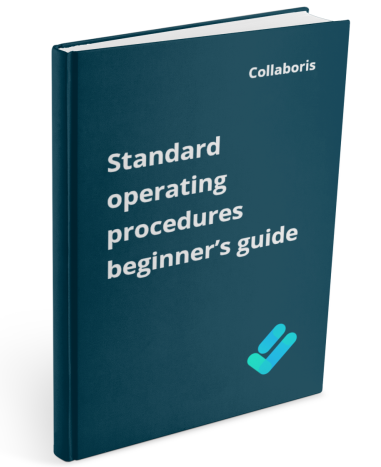Policy Approval Workflow Automated policy approval workflows offer several benefits that can significantly enhance ...
The benefits and challenges of a collaborative approach to compliance

Collaboration is a key aspect of any successful business, and it is no different in the realm of compliance. A collaborative approach to compliance can bring numerous benefits to an organization. However, it also poses certain challenges that must be addressed.
The benefits of a collaborative approach to compliance:
Better decision-making: A collaborative approach to compliance allows multiple individuals and departments within an organization to come together and make informed decisions. By pooling their knowledge, skills, and expertise, they can make better decisions. In turn, this can help the organization comply with the necessary regulations and standards.
Increased efficiency: Collaboration can help streamline the compliance process, reducing the time and resources required to meet regulatory requirements. By working together, different departments can share information and avoid duplicating efforts, making the overall process more efficient.
Improved communication: Communication is key in a collaborative approach to compliance. By working together, different departments can share information and provide feedback. This can lead to a more effective and efficient compliance process.
Increased accountability: When different departments within an organization work together on compliance, everyone involved becomes more accountable for their actions. This can help to reduce the risk of non-compliance. It also can ensure that the organization is adhering to the necessary regulations and standards.
The challenges of a collaborative approach to compliance:
Coordination: One of the biggest challenges of a collaborative approach to compliance is coordination. Different departments may have different priorities. It can therefore be difficult to ensure that everyone is working towards the same goal.
Communication: Effective communication is essential in a collaborative approach to compliance, but it can also be one of the biggest challenges. Different departments may have different levels of technical expertise. Consequently, it can be difficult to ensure that everyone is on the same page.
Resistance to change: Some departments or individuals within an organization may resist change and be resistant to the idea of working collaboratively. This can lead to a lack of buy-in, which can hinder the effectiveness of the collaboration.
Data privacy and security: When different departments within an organization are working together on compliance, there is a risk of sensitive information being shared. This can be a challenge, as it is important to ensure that the privacy and security of sensitive information is protected.
In conclusion, a collaborative approach to compliance can bring numerous benefits to an organization, but it also poses certain challenges that must be addressed. By working together, different departments can make better decisions, increase efficiency, improve communication, and increase accountability. However, coordination, communication, resistance to change, and data privacy and security must be carefully managed to ensure that the collaboration is successful.
Get your free Standard Operating Procedures guide
Creating Standard Operating Procedures for your organisation doesn't have to be complicated. This guide will introduce you to the whole lifecycle from creation to training and distribution.
You may also like:
January 17, 2025
January 7, 2025
Creating policy review reminders in Office 365 You might want to set up a ...
December 19, 2024
Podcast: Implementing effective healthcare procedures Implementing effective healthcare procedures is an ongoing process. It ...
December 19, 2024
Podcast: 10 Powerful Strategies for Employee ComplianceOrganizations face challenges in ensuring employee compliance with ...
December 8, 2024
AI Warns About Itself: How I Asked AI to Create a Podcast on the ...
November 4, 2024
Benefits of writing SOP's In any organization, standard operating procedures (SOPs) are critical to ...

